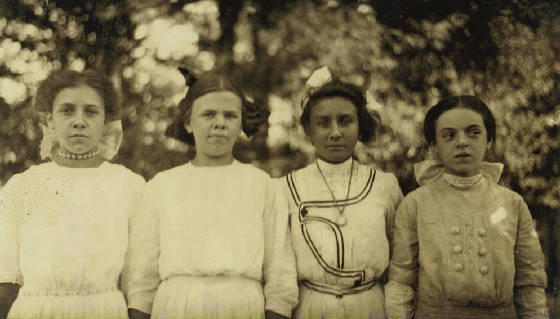
Lewis Hine caption: Comparison of Ages: Left end, Marion Deschere, just passed 13 years. Helps sister in mill “some.” Next is Mildred Greenwood, “going on 14.” Goes to school. Next is Mamie La Barge, 13 years, but said 14 years. Right end is Rosina Goyette, said 14, probably 12 or 13. Mamie and Rosina have steady jobs. Location: Winchendon, Massachusetts, September 1911.
“She was just like a mother. She was very nurturing. She made you feel good when you felt bad. She seemed to be happy all the time. She was really never blue. She was always smiling.” -Steven Courtemanche, grandson of Mildred Greenwood
Of the 40 photographs that Lewis Hine took in Winchendon in the first week of September, about 15 were taken on Sunday, September 3. All the children in these photos were dressed in their Sunday best. Most would have attended Mass that morning at Immaculate Heart of Mary, which had opened two years earlier. The Catholic parish recently celebrated the 100-year anniversary of the church building.
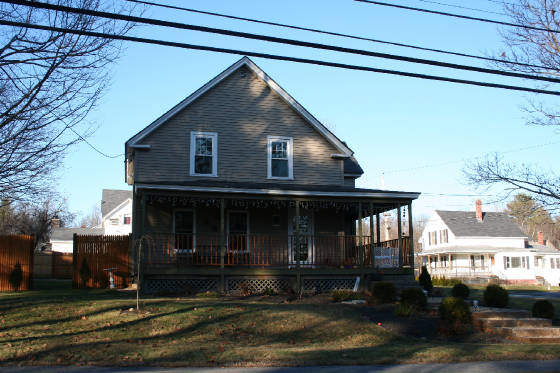
At the time of the photograph, Mildred and her family were living at 230 Maple Street. The street is the main thoroughfare that connects downtown Winchendon to the mill village of Winchendon Springs. Many of the houses on that street were built by the White Bros., owners of the Springs Mill and the Glenallan Mill, the subjects of Hine’s investigation. The other three girls in the picture were correctly named Marion Deschenes (worked at Glenallan Mill), Mamie LeBarge (Springs Mill) and Rosina Goyette (Springs Mill).
Mildred Estella Greenwood was born in Winchendon on November 28, 1897. According to the 1861 Canada census, her father, Alfred Boisvert, was born about 1858 in Quebec. About 1879, he came to Rollinsford, New Hampshire, with his parents, Eusebe and Marie Boisvert, who gave their last name as Greenwood (Boisvert literally translates to “green wood.”). According to the 1880 census, Alfred (now just Fred), his father, and five of his nine siblings worked at a cotton mill, likely the Salmon Falls Manufacturing Company.

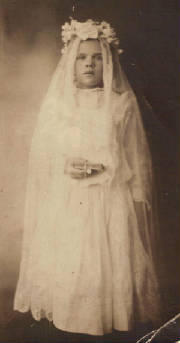
Fred Greenwood married Agnes (maiden name undetermined) about 1889. All of their seven known children would be born in Massachusetts (probably Winchendon), the first born in 1891. Mildred was the fifth. In the 1900 census, the family was living on Baldwinville Road in Winchendon, where Fred was working as a teamster for a saw mill. In 1910, they lived at 230 Maple Street. Fred had the same occupation.
Mildred married Wilfred Raymond Roy on September 2, 1918, oddly one day short of exactly seven years since Hine took her picture. Wilfred had come to the United States from Canada in 1908. In 1920, they lived with Mildred’s sister Eva, and her husband Alfonse, at 411 Maple Street. Both Wilfred and Mildred worked at the Springs Mill, he a carder, she a speeder. In 1930, they had two children, Lorraine and Gloria, and lived at 138 Spruce Street, about two blocks from the Catholic church. Wilfred was now working at Alaska Freezer Company, a local factory that made ice cream freezers. Mildred was a housewife.
They had two sons, Donald, who was born in 1933, and Raymond, who died in 1927 at the age of three. In 1941, Mildred faced another serious loss. Husband Wilfred died from injuries suffered in a fall while crossing the railroad tracks on his way home from work. He was only 41 years old.
Mildred did not marry again. Daughter Lorraine died in 1994. Mildred passed away on March 23, 1967, at the age of 69.
After placing Mildred’s photo in the Winchendon Courier, the town weekly newspaper, I located daughter Gloria (now Bourgault), who still lives in Winchendon, and Lorraine’s son (Mildred’s grandson), Steven Courtemanche, who moved from Winchendon to Maine several years ago. Neither had seen the Lewis Hine picture. I interviewed both of them.
It should be noted that there is some disagreement in the family over whether Fred and Agnes used their French name Boisvert, or whether they went by Greenwood. Almost all Winchendon records and census records list Greenwood. But it’s interesting that in the 1920 census, they are listed as Boisvert.
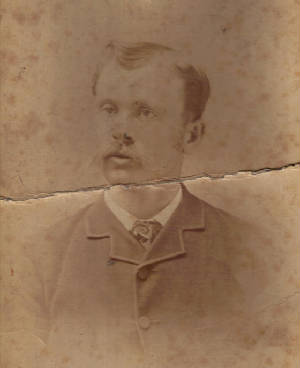
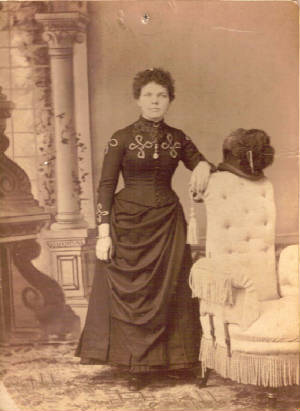
Edited interview with Gloria Bourgault (GB), daughter of Mildred Greenwood (Boisvert). Interview conducted by Joe Manning (JM) on November 12, 2008.
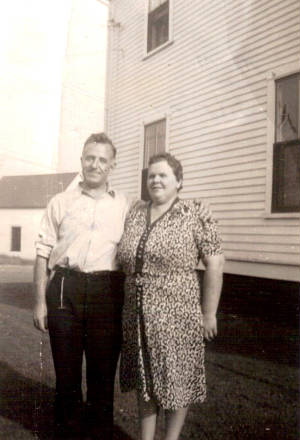
JM: What was your reaction when you saw the 1911 picture of your mother that I put in the Winchendon Courier?
GB: I was surprised. I’d never seen a picture of my mother that young. In the paper, they said her name was Greenwood. She never went by Greenwood. It was always Boisvert.
JM: When I did some research at the town hall, I found her marriage record. It said Greenwood, but at the bottom it included Boisvert as an alias. The town clerk told me that Boisvert means Greenwood.
GB: That’s right.
JM: Did you know she worked in the mill?
GB: Yes, but I don’t know how long. I think it was just until she got married.
JM: How far did she go in school?
GB: I don’t know.
JM: Could she read and write?
GB: Oh, yes.
JM: When were you born?
GB: 1929. I was born and brought up at 138 Spruce Street.
JM: Was it a one-family house?
GB: Yes.
JM: Where did your father work?
GB: At Alaska Freezer. They made ice cream freezers. It was on Lincoln Avenue in Winchendon.
JM: What did your husband do for a living?
GB: Richard worked for the town water department. He also worked at General Electric, in Fitchburg. He worked at the Springs Mill when he was young. That’s where I met him. He died in 1991.
JM: Did you graduate from high school?
GB: I quit school in my junior year. I started working at the mill in Spring Village when I was 17. The bus used to pick us up downstreet.
JM: What did you do at the mill?
GB: I ran a winding machine. I worked there five years, and then they closed. Then I worked at New Hampshire Ball Bearings, in Peterborough, for 30 years.
JM: Your father died in 1941. How did he die?
GB: He was crossing the railroad tracks and fell. He had some injuries and had a lot of problems with it, and then he died.
JM: You were only 12 years old then. It must have been tough.
GB: Yes. My mother took in a lot of ironing and did a lot of babysitting and housework for different people.
JM: What was your mother like?
GB: She was quiet. She was a homebody. She liked to play cards. She was a good cook. She used to go to New Jersey a lot to visit people on her mother’s side of the family.
JM: Did she drive down or take the train?
GB: She didn’t drive. She didn’t have a license. She used to go down with her brothers and sisters.
JM: How did your mother die?
GB: She had an aneurism.
JM: Was it sudden?
GB: Yes. She was in the hospital for some other reason when it happened. When they called from the hospital, we couldn’t believe it.
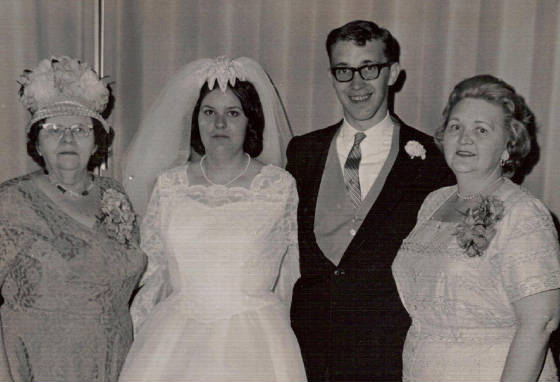
Edited interview with Steven Courtemanche (SC), grandson of Mildred Greenwood. Conducted by Joe Manning (JM), on January 15, 2009. Transcribed by Hilary Buxton and edited by Manning.
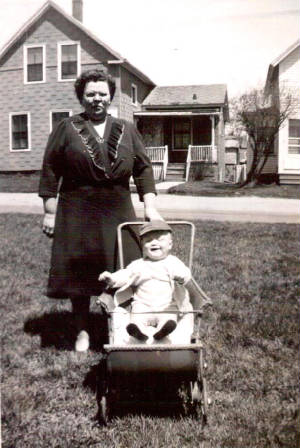
JM: Did you know that your grandmother worked as a child in the mill?
SC: Meme, that’s what I called her, would talk sometimes about how little money she made, how many hours she worked, and about making only 12 cents a week.
JM: Did she tell you what she did in the mill, and what the work was like?
SC: No, she didn’t.
JM: Did she continue to work in the mill when she was an adult?
SC: I believe she did. That was always a topic of conversation.
JM: It was the Springs Mill wasn’t it?
SC: Right.
JM: I guess a lot of people worked there in those days.
SC: Yeah, the Whites (mill owners) owned everybody.
JM: Did she speak well of the Whites?
SC: Yes, she did. In fact, her mother and father ran the boarding house for the mill. That was on Mill Circle. It’s gone now. It was torn down.
JM: Did she live at the boarding house?
SC: I think she did as a child.
JM: Your aunt told me that you actually lived with your grandmother for a while.
SC: She kind of brought me up.
JM: Why did that happen?
SC: Well, I come from a family that was kind of dysfunctional, so I spent most of my time with her.
JM: What was she like, and was she like a mother to you?
SC: She was just like a mother. She was very nurturing, very gentle. She made you feel good when you felt bad. She used to talk to me a lot. She loved to cook.
JM: What year were you born?
SC: 1946.
JM: Could she read and write?
SC: Oh, yes.
JM: Did she speak French?
SC: Yes. When I was little, I always spoke French. I wasn’t allowed otherwise; everybody spoke French. I didn’t know how to speak English. I went into the first grade not knowing how to speak English. When I was about six years old, I had my teeth extracted and then went into respiratory arrest and was pronounced dead. But I recovered.
JM: What was it that almost killed you?
SC: Sodium pentothal. They gave me too much of it when they extracted my teeth. I woke up in the morgue, and there was no one there, just a big black room.
JM: Did you scream?
SC: You don’t know what screaming is! I remember it very vividly. I needed to stay there for a couple of months. After that, I had forgotten how to speak French.
JM: So then you learned English?
SC: Yes, in the first grade. I had friends, and I just picked it up.
JM: Did your grandmother speak English to you after that?
SC: Oh, yes.
JM: What was your grandfather like?
SC: I never met him. He died fairly young in an accident. On the way home from work, he used to walk on the railroad tracks from the foundry, and he fell and hit his head on the rail and never recovered. That’s all I know about him, except I heard that he used to make the best hooch in town.
JM: You mean whisky?
SC: No, beer.
JM: When did you stop living with your grandmother?
SC: In 1966.
JM: You were 20 years old then. Did you continue to live in Winchendon?
SC: Yes, until my wife and I moved to Maine a couple of years ago.
JM: So you continued to be close to your grandmother?
SC: Yes.
JM: What were the last few years of your grandmother’s life like? She had lost her husband. Was she happy?
SC: She seemed to be happy all the time. She was really never blue. She was always smiling.
JM: Did she ever tell you anything about her family coming from Canada?
SC: She said her family came down in box cars or cattle cars to work in the mills. So that’s how they got into the country, coming down with the cattle. They changed their names to an English name. A lot of families did.
JM: Did she ever revert to her original name?
SC: Actually, she never took the Greenwood name.
JM: But in the census, she’s listed as Greenwood. Maybe her family was giving the name Greenwood.
SC: Probably.
JM: When your grandmother died, had she been sick for a while?
SC: No. She went into the hospital to have a physical. She had been in good health. And then that night she had an aneurism. A blood vessel popped in her brain. They had given her a complete bill of health earlier in the day.
JM: So she was healthy and happy up until the time she died.
SC: That’s right. She used say the Rosary, and she prayed that she would die in her sleep. She was very religious. She never missed Mass.
JM: Did you ever know her parents, Fred and Agnes?
SC: No. They had long since died by the time I was born.
JM: What do you miss most about your meme?
SC: Just being near her. She was a fantastic grandmother.
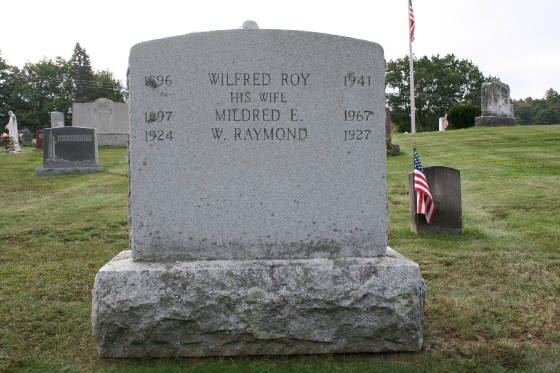
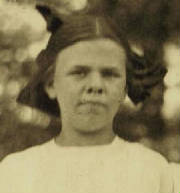
*Story published in 2009.